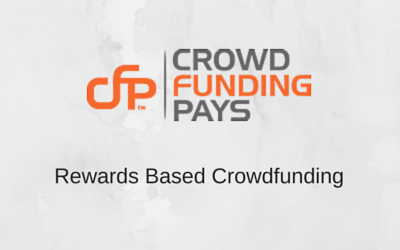Though investors must be accredited in order to partake in equity and debt crowdfunding offerings, the beauty of crowdfunding is that they don’t necessarily have to have any experience in investing. This inevitably leads to many new investors using equity crowdfunding as a means to diversify their portfolios and get into the crowdfunding/investing scene. So, for anybody who isn’t an equity veteran, this article will help simplify all the gray areas surrounding equity crowdfunding, so you can maximize your time and profit choosing only the best deals to invest in.
Crowdfunding can seem fairly daunting at times, and it can be difficult to know where to start. A little bit of background can go a long way in understanding and analyzing this innovative industry. Photo courtesy of RazrVentures.
Though it may seem like crowdfunding is an entirely different beast because of all its complicated rules and regulations, it’s important to remember that crowdfunding investing follow many of the same principles as traditional investing. Equity crowdfunding essentially follows all the principles of traditional investing that work efficiently, but takes the system and modernizes it to fit in an age of cloud data and analysis. This means giving investors a nearly instantaneous access to investing, deal processing, and pools of investment candidates.
Truth is, it’s not easy to become an equity portal; there’s quite a bit of weightlifting to do to even become halfway legitimate. But if you’re unfamiliar with equity crowdfunding, it might be hard to spot who’s doing the job correctly and who isn’t. So if you’re planning on using an equity portal, crowdfunding equity expert Todd Rickel of RazrVentures recommends that you should keep the following “due diligences” in mind as you conduct your search:
- Platform disclosures and security: the platform should have a tab or section for member disclosures, privacy statement, security and data integrity. Reasonable commercial means to ensure your protection should be highlighted and offer some level of comfort that your information is secured. The platform should also explain fees and relationships with partners such as attorneys, accounting firms, brokerages and other helpful agencies. Size and number of deals (typically few in this nascent industry) is less important than the fee structures and support infrastructure they offer to investors. How alone in the wilderness do they put you? How wild wild west are their operations? How do they help you along your path to decide if you want to invest your capital in one of the companies listed on their platform?
- Company documentation: The platform should have set up a standard way for all companies listing themselves on the site to present their (a) history and compelling story, (b) financial plan, (c) operational resources and staffing, (d) marketing and competitive analysis, and (d) pitch that outlines your benefits should you invest. Traditional business plans are overrated but there needs to be a clear stated vision, an experienced leadership team, and a plan that outlines risks and rewards. You do not have to be an expert in the profession, but the company does need to provide comfort that they are experts and have thought through all the details needed to make your investment fruitful.
- Subscription agreement: Your lawyer needs to be satisfied that the agreement meets federal, state, local (and your explicit investment) standards. I will write an entire blog on this section in the future, but for purposes of highlighting items be sure that the amount of the investment is clear and that the shares received for the capital are free from all encumbrances. Those shares need to be yours free and clear. If your investment is debt rather than equity, be sure the terms are clear with a table and dates of interest payments. Also, where mutually agreeable, include if possible an option that converts debt into equity at a future date and the rate at which your capital converts into shares. While many companies do not include this option, it is a worthwhile negotiation strategy.
- Regular company updates: The agreement should insist that you receive regular financial, product sales, R&D, and HR/staffing updates as appropriate. Quarterly is a reasonable expectation. It is possible that you could receive a board position in an early stage company if you are seeking equity (not likely for debt but still possible). Be sure to understand that such access to company information while very useful, also obligates you to a fiduciary responsibility to the Company and not to your personal investment. You should balance your gaining daily/monthly access against the greater responsibilities this access could obligate you. Regardless, you will want to know how income and cash flow are meeting forecasts.
- Exit and subsequent company offers: Many investors overlook this item and in my mind, it is often the most important of all. How do you convert your capital investment into hard returns? Do you get annual dividends? If later offerings occur, do you have a first right of refusal to invest more capital? Can your investment be easily diluted? Can you be forced to sell your shares? What happens if the company is sold, do you have an option to cash out or are you obligated to convert equity into a new entity? Your attorney can help work through these details, but the company should have this all worked out thoroughly.
These elements each have a backstory and more research to be done behind them. However, these five keys provide a great starting point to making educated crowdfunding decisions and to ensuring that you won’t be taken for a ride by a well-designed website claiming to be the highest-class equity crowdfunding platform. The most important takeaway from these recommendations is to make sure that the platform you’re using:
It’s important to do your research before choosing an equity crowdfunding portal to ensure that they have your best interest in mind and that they are abiding by honest business practices. Photo courtesy of RazrVentures.
“will have helped work out most of these details during their screening and due diligence process. Some platforms will post any deal out there and collect their marketing fees. You should be sure that the platform of choice (can I put in a shameless plug for RAZR Ventures again?) looks out for BOTH the interests of the company and the investor. In my opinion, it is in the platform’s best interests to do so and in the long run their reputation will reflect this dual commitment and attention to both entrepreneurs and accredited investors.”
Once you’ve found the platform that fulfills all of the above items, you can rest assured, trust fully in what they’re offering, and focus on what you do best: investing.
Article by Rafah Ali. Quotes and photos courtesy of Dr. Todd Rickel, via RazrVentures



















